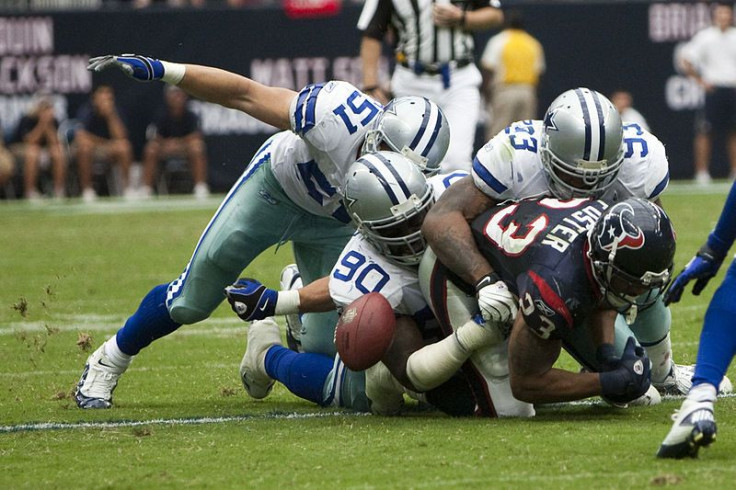Football and Concussions: New Drug To Be Tested On NFL Alumni

Finally, a possible solution to contact sport related head injuries.
Neuralstem Inc., a company specializing in cell therapy technology, has developed a medication in pill form that may stimulate neurons in the area of the brain that handles depression and could play a role in major brain injuries.
The National Football League (NFL) has expressed a great deal of concern lately when it comes to former player's development of neurological disorders. The increase in awareness of the issue comes after a series of suicides were linked to concussions sustained during a player's career, most notably Pro-Bowl linebacker Junior Seau, who took his life three years after retiring from a 13 year NFL career.
"These injuries can result in long-term and serious loss of cognitive function, depression, a shorter life span and, sadly, death by suicide in some cases, said Neuralstem's president and CEO, Richard Garr. "In addition to finding ways to better prevent such injuries, it is imperative that we provide new and improved ways to treat those with such neurological trauma."
The drug, currently called "NS1-189." is already in Phase lb clinical trial for treatment of depression; however, in further studies on animal subjects researchers noticed the drug seemed to promote the growth of brain cells, prompting them to pursue additional studies in its potential use for concussion treatment.
On Wednesday, Neuralstem announced that it will be working with the NFL Alumni Association to begin clinical trials on NSI-189 with former players.
"The National Football League Alumni Association is focused on this serious health issue, which is destroying quality of life and has tragically led to several high-profile suicides just this past year among our members," said Lee Nystrom, Chairman of the Board, Emeritus of the NFL Alumni Association, and former Green Bay Packer. "The NFL Alumni Association is excited to be working with Neuralstem on this cutting-edge technology. We are committed to pursuing both basic research into traumatic brain injury as well as pushing the envelope to create therapies that can improve the quality of life for our members afflicted with these diseases."
NS1-189 has already received backing from both the Defense Advanced Research Projects Agency (DARPA) and the National Institutes of Health (NIH).



























